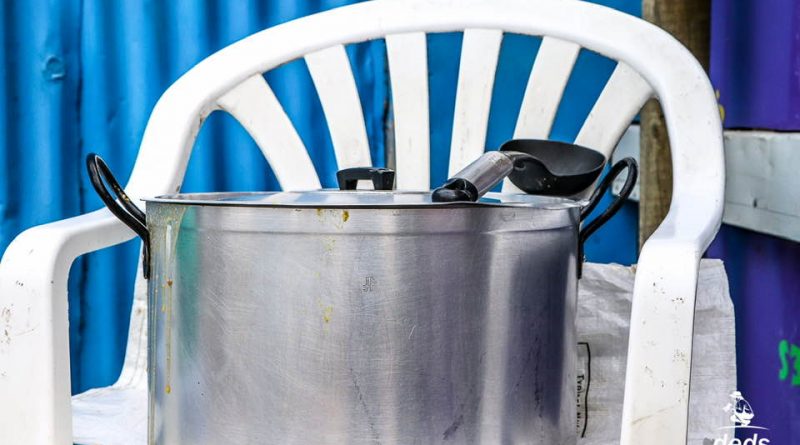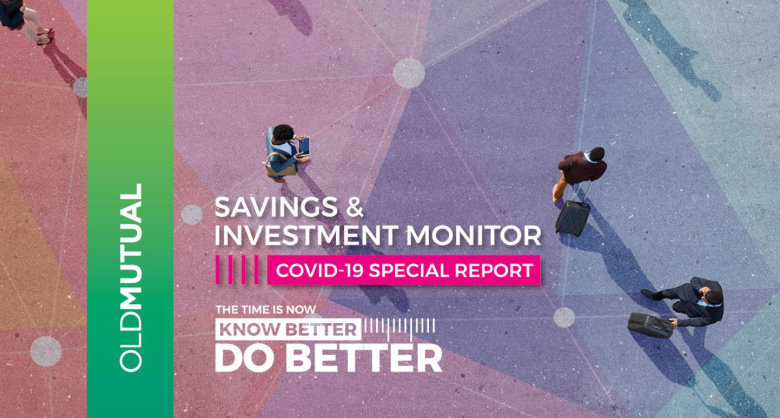SA Households Facing High Financial Stress, 2020 Old Mutual Savings & Investment Monitor Shows
A staggering yet understandable 58% of households across South Africa (SA) are facing high or overwhelming financial stress as the Covid-19 crisis knocks savings and raises debt levels, according to the latest Old Mutual Savings & Investment Monitor (OMSIM).
The latest annual survey, which has tracked the shifts in habits and attitudes towards saving and investing of South Africa’s working metropolitan households since 2009, was released today via an online webcast to the market.
This year, in light of the Covid-19 pandemic, the research was conducted with a special focus on how people are being affected by the economic downturn and the financial implications of the Covid-19 pandemic. This research was conducted online with just under 1500 respondents from 29 May – 23 June 2020 (i.e. during lockdown level 3).
Overall, satisfaction with the current financial situation is down from 6.3 in 2019 to a mean score of 5.3 out of 10 this year.
Lynette Nicholson, Head of Research and Insights at Old Mutual, says: “A very alarming consequence of the financial pressures South African households are experiencing is that just over 50% are currently dipping into their savings just to make ends meet, 37% have fallen behind on paying household bills and 23% have cashed in a savings/investment policy.
“Another indicator of the distress the crisis has caused is that only 1 in 2 credit cardholders can comfortably make their repayments every month.”
Debt and loans are also a concerning sign of the financial pressure households are under: 43% are taking personal loans from financial institutions (up from 21% in 2019), 19% of respondents are taking loans from family or friends (up from 13% in 2019) and 12% are borrowing from micro-lenders (up from 5% in 2019).
“Another interesting finding relates to SA’s informal savings. Although membership of stokvels has declined from 44% to 34% this year, there are more people now contributing to grocery schemes (from 9% in 2019 to 23% in 2020) and burial societies, (from 23% in 2019 to 38% in 2020),” adds Nicholson.
“There is no doubt that the pandemic and its effect on our economy has intensified the already dire position of households, placing unprecedented strain on budgets, savings and overall financial wellbeing,” she says.
“There is no greater time than now for people to make responsible and informed financial decisions to ensure they can withstand the pressure and not compromise their long-term savings goals and financial futures. With our 175 years of experience, we at Old Mutual are confident we can guide and support our nation to ‘Know Better to Do Better’ and find ways to navigate through these challenging times.”
John Manyike, Head of Old Mutual Financial Education, added: ”As the custodian of so many people’s financial futures, we are acutely aware of the important role we must play in providing valuable and practical tips and tools to improve the financial wellbeing of our people and our nation.”
Key financial education tips from Manyike include:
- Always seek expert financial advice
- Remember that during times like these, knowledge plays a crucial role in the financial decisions we make. Equip yourself with financial understanding to ensure you make the right decisions
- Look at your finances – and particularly your expenses – really carefully and plan properly for the future
- Consider having a ‘side hustle’ to supplement your income
- Find ways to downscale your lifestyle to free up additional cash
- Don’t borrow from your future and don’t be tempted to draw from your retirement savings
- Use credit responsibly
- If you have already consolidated your debts to ease the pressure, avoid further credit
- Avoid taking loans to buy things in bulk
- Be very responsible and cautious about buying on credit to avoid debt spiralling out of control
- Be transparent with your family, play open cards about the debts you have to service so you can manage expectations and help them adjust
- Do not be tempted to disinvest because of panic. Markets are generally volatile during uncertain times but will self-correct over time
- If you resign from your job during this time, avoid the temptation to cash out your retirement savings
- Before you approach a credit provider or accept any offer of debt relief or a payment holiday, make sure you understand the terms and conditions of the agreement
- Build an emergency fund over time. Ideally, you need a safety net that’s the equivalent of 6 months of income
- Include loyalty programmes in your emergency fund building strategy
“Times are extremely tough, and the ongoing crisis and constant negative news cycle are feeding into this sense of hopelessness. However, the key is to understand that there are people out there willing to help and that there are various things you can do financially to ensure you get through the worst of the crisis,” says Manyike.
The stark reality is that the South African economy was in trouble before Covid-19, with rising unemployment and slowing income growth limiting the ability to save. There is no greater time than now to take control of your finances and Know Better to Do Better.
Savings behaviour will play a big role in shaping the post-pandemic global recovery, says Manyike. “Although the crisis has certainly made saving a lot harder, it remains possible to reverse South Africa’s poor saving record through a sustained collaborative effort, across the economy, with financial education, trusted advice and support at its core.”





